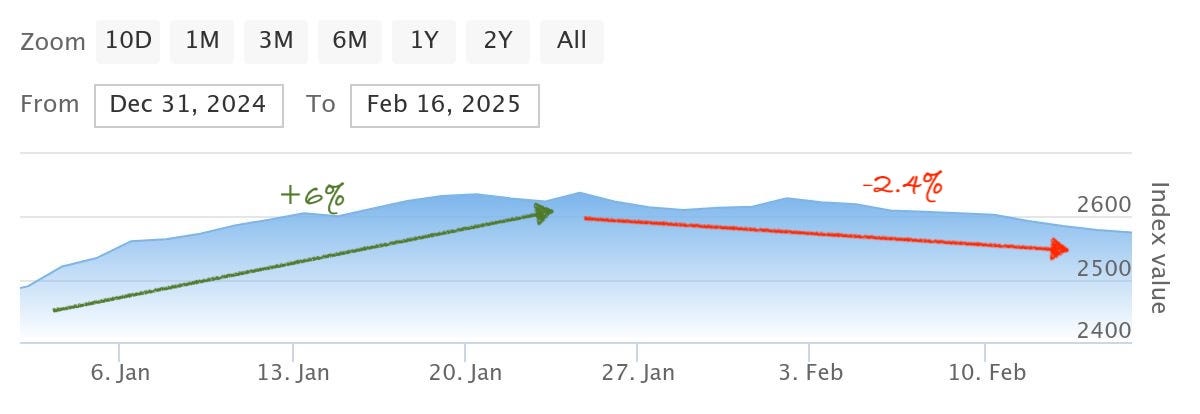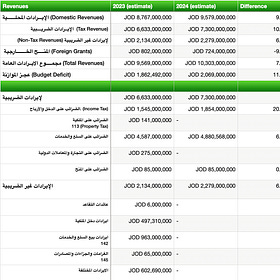I've created an interactive data table that displays the revenues, taxes, and profits of 23 of the largest publicly listed companies for the years 2024 and 2023. The table allows readers to sort the data by ascending or descending order by clicking on the column headers, making it easy to compare the figures across companies and years. Additionally, you can search for data on individual companies to quickly find specific information.
Key takeaways:
Zara Hotels, the largest hotel chain in Jordan1, took the biggest hit
The energy sector underperformed. Afaq (better known as Manaseer Petrol) and JoPetrol saw revenues decline by 8% and 9% respectively (this decline could possibly be attributed to factors like the electrification of the Jordanian fleet.2)
Excluding the banking sector, Siniora Food’s revenue grew by more than 10%, while Jordan Duty Free Shops saw a growth of 20%.
Jordan Telecom (better known as Orange3) barely grew.
Banking sector was a mixed bag, but I will cover this in the next post.
Overall revenue increased by 3.44% for all these companies to reach 13.079 billion JODs.
The total income tax to be paid by the top 23 companies is 850 million JOD, which is a 2.5% decrease compared to last year.
I assume the Ministry of Finance has taken this into account while preparing the 2025 budget, as it reflects lower figures than the unrealistic target of 2024 (when I wrote about the 2024 budget4, I warned that it will be much lower than forecast).
Again, we're only discussing income tax here. Potash and phosphate also contribute mining royalties to the government. Manaseer and JoPetrol make contributions via the excise fuel tax.
It’s important to highlight that publicly listed companies account for around 50% of income tax revenues.
Overall profits (2.5 billion) are up 8.51% compared to 2023. This means these companies will be paying out significantly higher dividends than last year..
Stock market index performance: As I’ve mentioned before5, most retail investors typically wait for companies to announce their dividend plans (profits to be redistributed to shareholders), and that's when they buy shares in the stock market. Usually, the market sees a steady rise from January through February and into mid-March. After April, when most companies hold their annual shareholder meetings and pay out dividends, many investors tend to sell their shares and wait for the next round the following year. I call it the ‘dividend rally’.
This time, the dividend rally was cut short, peaking in January 23rd at 2,638.08 points (up 6% YTD). When President Donald Trump was inaugurated, the market became jittery and slowly began to decline, despite generous dividend announcements. As a result, the dividend rally was abruptly halted.
Let's see if it can regain its momentum.
Impact of COVID-19 on Jordan’s Tourism Hotel Industry (Part 2)
ZARA INVESTMENT HOLDING (Ticker: ZARA)
🔋Electric Vehicles 🚗 in Jordan
Edama Chairman Dr. Dureid Mahasneh recently said that the reason most Jordanians are opting for electric cars instead of standard internal combustion engine (ICE) cars is not because Jordanians care for the environment; car buyers are switching to electric cars because it is more economical










